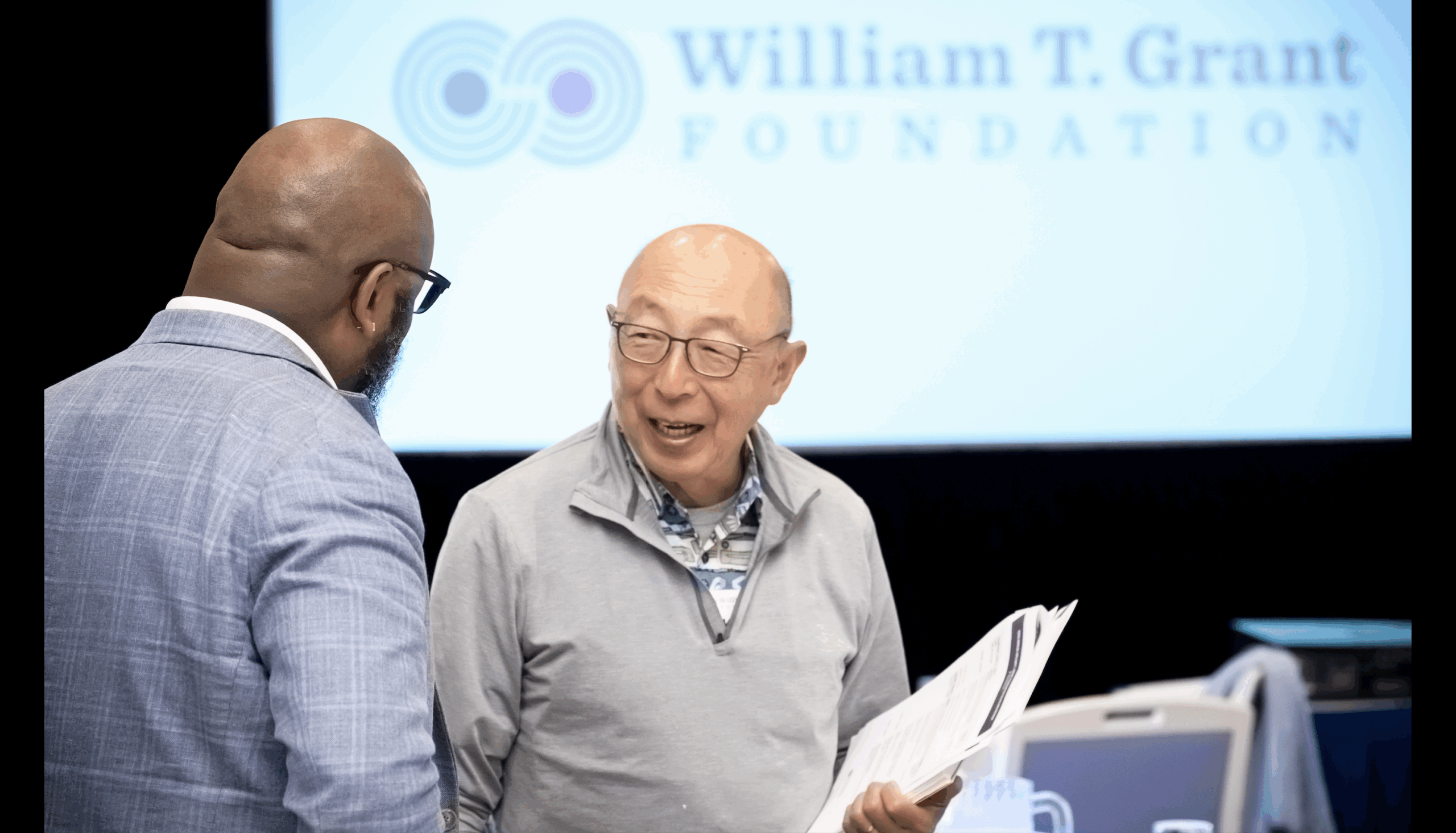The Foundation is pleased to announce that three research grantees have been awarded grants to support their development as mentors to junior researchers of color. The awardees will mentor promising doctoral students and post-doctoral fellows in enhancing their methodological skills, publication records, and career networks.
The mentoring grants program is designed to help William T. Grant Scholars and research grantees hone their skills and abilities as mentors and help researchers of color reach higher levels on the career ladder. The award encourages grantees to be strong mentors attuned to the career development challenges disproportionately faced by their junior colleagues of color.
Applicants to the program assess their current strengths and weaknesses as mentors and propose goals for improving their mentoring skills. They and their mentees also assess the mentees’ strengths and weaknesses and design a mentoring plan that will strengthen the mentees’ potential for a successful research career.
The award encourages grantees to be strong mentors attuned to the career development challenges disproportionately faced by their junior colleagues of color.
“One thing that’s distinctive about this program is that it’s as much about improving mentoring skills as it is about improving the research careers of mentees,” said Melissa Wooten, the program officer that oversees the program. “In addition to supporting the dyads throughout the duration of their grant, the Foundation holds an annual Mentoring Meeting that focuses on career exploration and the mentees’ research and coordinates consultations with experts in mentoring across difference.”
This year’s mentoring grantees are:
Daniel Crowley, Pennsylvania State University
Daniel Crowley is a research grantee studying ways to improve the use of research evidence for child and family policy. He has mentored numerous students and scholars of color throughout his career, with mentees ranging from middle school students to tenured university faculty. In 2020, Crowley was selected into the inaugural cohort of the Society for Prevention Research’s mentoring program specializing in cross-race relationships. From this experience, Crowley, a White heterosexual male, gained more insight into areas of growth he needs to pursue so that he can better support people from different backgrounds and sociocultural contexts than his. Crowley’s goals include developing the skills and deep sensitivities needed to effectively mentor and support minoritized scholars. With this award, Crowley will continue his journey of learning to help his mentees process professional experiences that stem from the intersection of their gender and racial identities. Crowley plans to embed deep reflection about the meaning of White privilege and seniority into his advisory approach. He plans to elicit and engage in honest and open conversations about race and privilege to normalize discussing these topics within mentoring relationships. Crowley notes that if he and others like him fail to gain these skills and adapt their approaches, minoritized faculty will continue to take on a disproportionate share of responsibilities for mentoring minoritized students. Crowley’s mentee, Antoine Lovell, is a Black postdoctoral fellow at Pennsylvania State University. Dr. Lovell’s program of research focuses on policymakers’ use of scientific evidence related to youth homelessness and housing for marginalized groups. Lovell’s goals for this award include career strategic planning, writing, publishing, and identifying external funding opportunities to support his independent scholarship.
Bernadette Sanchez, DePaul University
Bernadette Sanchez is a research grantee studying whether cultural humility and social justice training for volunteer mentors improves their relationships with and outcomes for low-income youth of color. She has mentored twenty-three graduate students, fifteen of whom identified as students of color, six junior faculty, and twenty undergraduate participants of the McNair Postbaccalaureate Achievement Program—a federally funded effort to increase the diversity of PhD recipients. Sanchez’s goals include developing strategies to effectively mentor and train graduate students of color as her research team grows and increasing her comfort with cross-racial mentoring. Sanchez, a Dominican American, plans to place a particular emphasis on supporting Asian and Asian American students as they navigate anti-Asian racism. With this award, Sanchez will promote a culture of collective responsibility for mentoring graduate students of color by sharing what she learns with her research team and the faculty and graduate students within her department and college. Sanchez’s mentee, So Jung Lee, is a Korean doctoral student at the University of Illinois, Chicago. Her goals include developing and implementing community-partnered interventions that promote positive youth-adult relationships, enhancing her capacity with mixed-methods research, improving her writing and becoming more comfortable producing manuscripts in English, and gaining confidence in her ability to navigate academia as a woman of color. Sanchez and Lee will meet monthly with senior Asian and Asian American scholars. In addition to supporting Lee’s professional development, these meetings will also provide Sanchez the opportunity to learn best practices for supporting Asian and Asian American junior researchers.
Sarah Walker, University of Washington
Sarah Walker is a research grantee developing and validating measures designed to monitor conceptual research use among juvenile justice leaders. She has mentored seven undergraduate students, three master’s students, four doctoral students, two post-baccalaureate interns, three fellows, and two early-career faculty. Though more than half of her mentees have been people of color, Walker recognizes that she has found it difficult at times to effectively mentor across difference in some of these relationships. With this award, her goals include developing more skills and confidence to help mentees when they encounter challenges related to their racial or cultural identity, normalizing discussions about race within her mentee relationships, and helping mentees explore the multiple career paths available to people with doctorate degrees. Beyond improving her individual mentoring skills, Walker will also create a “mentoring across difference” module for her unit’s mentoring series, which provides resources and tools to support faculty on their journey toward becoming better mentors. Walker’s mentee, Juan Gudino is a Latino doctoral student at the University of Washington School of Public Health. His goals include training in community-driven translational research, exploring tenure and alternative track careers, and interrogating his positionality as a Midwestern scholar of color interested in conducting juvenile legal system research. His and Walker’s mentoring relationship will encompass independent and collaborative projects.





